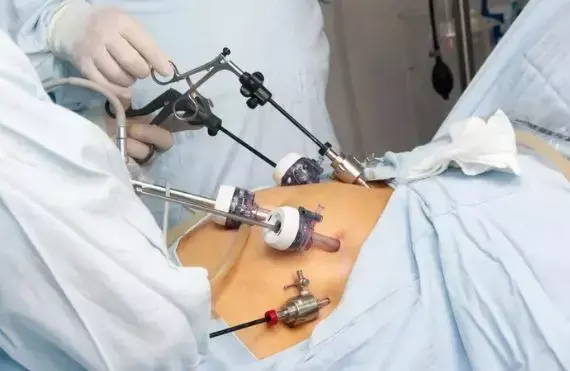- Home
- Medical news & Guidelines
- Anesthesiology
- Cardiology and CTVS
- Critical Care
- Dentistry
- Dermatology
- Diabetes and Endocrinology
- ENT
- Gastroenterology
- Medicine
- Nephrology
- Neurology
- Obstretics-Gynaecology
- Oncology
- Ophthalmology
- Orthopaedics
- Pediatrics-Neonatology
- Psychiatry
- Pulmonology
- Radiology
- Surgery
- Urology
- Laboratory Medicine
- Diet
- Nursing
- Paramedical
- Physiotherapy
- Health news
- Fact Check
- Bone Health Fact Check
- Brain Health Fact Check
- Cancer Related Fact Check
- Child Care Fact Check
- Dental and oral health fact check
- Diabetes and metabolic health fact check
- Diet and Nutrition Fact Check
- Eye and ENT Care Fact Check
- Fitness fact check
- Gut health fact check
- Heart health fact check
- Kidney health fact check
- Medical education fact check
- Men's health fact check
- Respiratory fact check
- Skin and hair care fact check
- Vaccine and Immunization fact check
- Women's health fact check
- AYUSH
- State News
- Andaman and Nicobar Islands
- Andhra Pradesh
- Arunachal Pradesh
- Assam
- Bihar
- Chandigarh
- Chattisgarh
- Dadra and Nagar Haveli
- Daman and Diu
- Delhi
- Goa
- Gujarat
- Haryana
- Himachal Pradesh
- Jammu & Kashmir
- Jharkhand
- Karnataka
- Kerala
- Ladakh
- Lakshadweep
- Madhya Pradesh
- Maharashtra
- Manipur
- Meghalaya
- Mizoram
- Nagaland
- Odisha
- Puducherry
- Punjab
- Rajasthan
- Sikkim
- Tamil Nadu
- Telangana
- Tripura
- Uttar Pradesh
- Uttrakhand
- West Bengal
- Medical Education
- Industry
Bariatric surgery linked with lower BMD and osteoporosis postoperatively: Study

Recent research has highlighted that despite similar lifestyle, Bariatric surgery, Roux-en-Y gastric bypass was followed by a lower bone mineral density compared to controls. Further the team observed that the reduced BMD in RYGBP cannot be explained, seemingly nor prevented, by lifestyle factors. The findings have been published in BMC Surgery .
Bariatric surgery, Roux-en-Y gastric bypass (RYGBP) in particular, is associated with weight loss as well as low bone mineral density. Bone mineral density relies upon multiple factors, some of which are lifestyle factors.
RYGBP has several working mechanisms; reduced size of the stomach, excluded passage through the duodenum and proximal small bowel, and multiple described changes in gastrointestinal hormones . Overall, the changes in the physiology of the gastrointestinal tract result in significant weight loss (average roughly 15 BMI-units), in addition to an increased risk of a variety of malnourishment conditions including vitamin D and calcium deficiency. Though significant decreases in BMD post-bariatric surgery is an established threat that applies to a growing number of patients; however the cause and prevention of BMD reduction has yet to be properly explored.
The aim of this current study was to compare lifestyle factors in order to eliminate them as culprits of the suspected difference in BMD in RYGBP operated and controls.Study participants included 71 RYGBP-operated women (42.3 years, BMI 33.1 kg/m2) and 94 controls (32.4 years, BMI 23.9 kg/m2). Each completed a DEXA scan, as well as survey of lifestyle factors (e.g. physical activity in daily life, corticosteroid use, and calcium intake). All study participants were premenopausal Caucasian women living in the same area. Blood samples were taken in RYGBP-patients.
Results revealed the following facts.
- BMD was significantly lower in RYGBP, femoral neck 0.98 vs. 1.04 g/cm2 compared to controls, despite higher BMI (present and at 20 years of age) and similar physical activity and calcium intake.
- In a multivariate analysis, increased time since surgery and age were negatively associated with BMD of the femoral neck and total hip in RYGBP patients.
"This study supports the theory that BMD reduction is procedure related as the RYGBP group had lower BMD than controls despite reporting higher skeletal strain and indicating a more calcium rich diet. Further, BMD measurements were significantly inversely associated with postoperative time. From this study we conclude that current postoperative follow-up regimes need to be expanded with a more aggressive approach to screen for and prevent decreases in BMD, and essentially the development of osteopenia/osteoporosis. As the reduction in BMD was associated with time since surgery, strict follow-up is a lifelong necessity after bariatric surgery, and especially important in younger bariatric patients."the team concluded.
For full article follow the link: https://doi.org/10.1186/s12893-021-01281-5
Primary source:BMC
Dr Satabdi Saha (BDS, MDS) is a practicing pediatric dentist with a keen interest in new medical researches and updates. She has completed her BDS from North Bengal Dental College ,Darjeeling. Then she went on to secure an ALL INDIA NEET PG rank and completed her MDS from the first dental college in the country – Dr R. Ahmed Dental College and Hospital. She is currently attached to The Marwari Relief Society Hospital as a consultant along with private practice of 2 years. She has published scientific papers in national and international journals. Her strong passion of sharing knowledge with the medical fraternity has motivated her to be a part of Medical Dialogues.
Dr Kamal Kant Kohli-MBBS, DTCD- a chest specialist with more than 30 years of practice and a flair for writing clinical articles, Dr Kamal Kant Kohli joined Medical Dialogues as a Chief Editor of Medical News. Besides writing articles, as an editor, he proofreads and verifies all the medical content published on Medical Dialogues including those coming from journals, studies,medical conferences,guidelines etc. Email: drkohli@medicaldialogues.in. Contact no. 011-43720751


